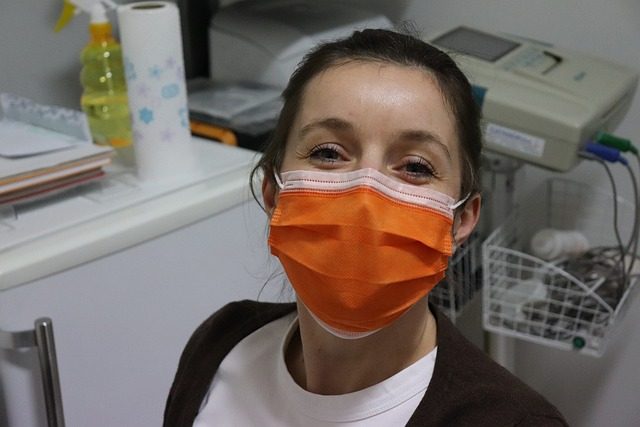Embarking on a journey in nursing can be both rewarding and challenging. Understanding what a career as a registered nurse looks like is essential for anyone considering this path. From patient care to specialized practices, the role of registered nurses (RNs) is diverse and impactful.
Registered nurses play a crucial role in the healthcare system, often being the primary point of contact for patients. In this article, we will explore various aspects of a nursing career, including daily responsibilities, required skills, and the benefits of this profession.
Table of Contents
What Does A Career In Nursing Look Like?
A career in nursing offers a unique blend of science, compassion, and critical thinking. Nurses are often at the forefront of patient care, working in various settings such as hospitals, clinics, and community health centers. This career path provides numerous opportunities for specialization and advancement, making it an appealing choice for many.
In addition to direct patient care, nurses often engage in administrative tasks, ensuring that healthcare facilities run smoothly. The variety in daily duties keeps the job dynamic and fulfilling, as every day presents new challenges and learning opportunities.

What Do Nurses Do?
Nurses are responsible for a wide range of tasks, from monitoring patient health to administering medications. Their duties can vary significantly depending on the healthcare setting and specialty they pursue. Key responsibilities include:
- Conducting physical exams and health assessments.
- Administering medications and treatments.
- Collaborating with other healthcare professionals.
- Providing education and support to patients and their families.
- Documenting patient care and progress.
The flexibility in their roles allows nurses to specialize in fields such as pediatrics, emergency care, or geriatrics. This specialization often requires additional training and certification, enabling nurses to excel in their chosen areas.
What Is A Registered Nurse’s Responsibilities?
The responsibilities of a registered nurse are vast and varied. They are trained to respond to medical emergencies and provide high-quality patient care. Some specific responsibilities include:
- Monitoring vital signs and symptoms of patients.
- Developing and implementing patient care plans.
- Coordinating care with other healthcare professionals.
- Ensuring compliance with healthcare regulations and standards.
- Educating patients on health management.
Additionally, registered nurses must maintain accurate records of patient care and frequently communicate with doctors and other medical staff about patient conditions. This role necessitates a strong foundation in medical knowledge and excellent communication skills.
How To Become A Registered Nurse?
Becoming a registered nurse requires education, training, and licensure. The typical steps to pursue a nursing career include:
- Completing a nursing education program, such as a Bachelor of Science in Nursing (BSN) or an Associate Degree in Nursing (ADN).
- Passing the National Council Licensure Examination for Registered Nurses (NCLEX-RN).
- Obtaining state licensure to practice as an RN.
- Gaining clinical experience through internships or placements.
- Considering further education for specialization or advanced practice roles.
The path to becoming a nurse can vary based on individual goals and the educational program chosen. However, obtaining a solid foundation in nursing education and practical experience is crucial for success in this field.
What Are Nursing Salaries?
Nursing salaries can vary significantly based on factors such as location, experience, and specialty. On average, registered nurses earn a competitive salary, with many positions offering benefits such as health insurance and retirement plans. According to recent data, the median annual salary for registered nurses in the United States is approximately $75,000.
Those who specialize in high-demand areas, such as anesthetics or critical care, may earn even higher salaries. Additionally, nurses with advanced degrees or certifications often have access to more lucrative positions and career advancement opportunities.
What Is The Typical Day Like For A Registered Nurse?
The daily routine of a registered nurse can be both structured and unpredictable. Most nurses work in shifts, which can range from 8 to 12 hours, and may include day, night, or weekend hours. A typical day might involve:
- Starting with a handoff report from the previous shift.
- Conducting morning assessments of all assigned patients.
- Administering medications and treatments as prescribed.
- Updating patient records and documentation.
- Engaging with patients and their families to provide support and education.
Each shift can bring new challenges, requiring nurses to adapt quickly to changes in patient conditions or emergencies. The ability to multitask and prioritize is essential in this fast-paced environment.
What Challenges Do Nurses Face In Their Daily Routine?
While a career in nursing is fulfilling, it also comes with its share of challenges. Some common difficulties nurses face include:
- High-stress situations, especially during emergencies or critical care scenarios.
- Long hours and physically demanding shifts that can lead to burnout.
- Emotional strain from dealing with sick or dying patients.
- Maintaining effective communication among a diverse team of healthcare professionals.
- Adapting to constantly evolving healthcare regulations and technologies.
Despite these challenges, many nurses find their work rewarding and impactful, making a real difference in the lives of their patients.
Related Questions About Nursing Careers
What is the career summary of a registered nurse?
A registered nurse’s career involves providing care to patients, working collaboratively with healthcare teams, and specializing in various fields. RNs are integral to the healthcare system, often focusing on patient education, treatment administration, and emotional support. With a strong job outlook and opportunities for advancement, nursing offers a fulfilling career path for those passionate about healthcare.
What does life as a nurse look like?
Life as a nurse can be dynamic and demanding. Nurses often work long hours and experience diverse challenges throughout their shifts. However, they also experience significant moments of satisfaction, such as witnessing a patient’s recovery or providing crucial support during difficult times. The blend of teamwork, patient interaction, and continuous learning shapes the daily life of a nurse.
What is it really like to be a nurse?
Being a nurse means balancing compassion and professionalism. It requires resilience, organization, and a commitment to patient care. Nurses often face emotional challenges, yet they also enjoy the camaraderie of their colleagues and the fulfillment that comes from helping others. It’s a career that demands dedication but offers numerous rewards.
What is the best part of being a registered nurse?
The best part of being a registered nurse often revolves around the profound impact they have on patients’ lives. Many nurses appreciate the opportunity to form meaningful relationships with patients and their families. Additionally, the diversity of nursing roles and specialties allows them to continuously learn and grow, enhancing both their skills and job satisfaction.









